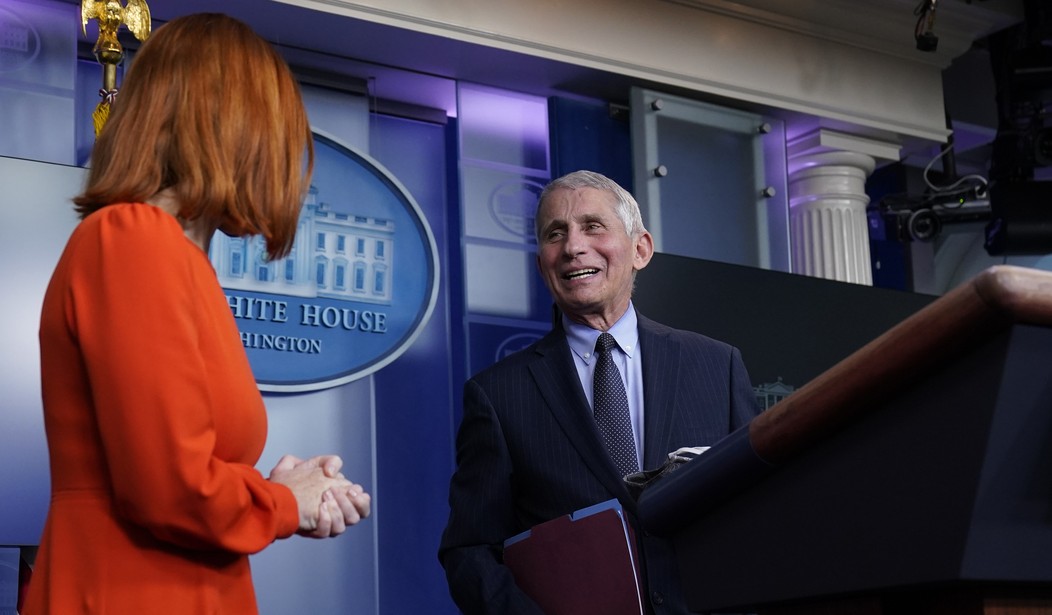Recently, President Joe Biden said there was nothing we could do to change the trajectory of the COVID-19 pandemic. Looking at recent news and research, this seems to be patently untrue. There are at least three concrete actions that the new administration can take to make a difference while continuing to roll out the vaccine.
First, let’s change the testing regime. The World Health Organization (WHO) has issued guidance stating that a positive PCR test for COVID-19 is only one piece of a clinical puzzle used to diagnose an infection. Another component is clinical symptoms. It is time to update testing guidance to reflect this change and encourage testing for symptomatic patients. This policy change was first attempted in August and reversed with no scientific basis.
In addition to changing who needs to get tested, it is past time to change where they get tested. Patients should be encouraged to get tested in their primary physician’s office or in a clinic setting with medical professionals on staff that can follow the patient. A relationship with a clinician provides continuity of care and better assessment of the clinical presentation of the virus.
A change in the technical guidance on conducting the COVID-19 PCR test is also long overdue. It has been widely known and underreported since late last summer that samples run through too many amplifications, called the cycle threshold (Ct). As the new WHO guidance notes, the higher the Ct, the less likely the patient will become ill or transmit the disease.
All lab results should include the Ct for interpretation by a medical professional. Labs should also include the Ct in the roll-up of test results at the local, state, and national levels for public policy decisions. As Jaafar et al. noted in September, tests with a PCR greater than 30 should not impact public health decisions. The testing of all inpatients should also end. Recording deaths from the virus should be the same as for influenza: Only count hospitalized patients with symptoms of the virus and a lab-confirmed test.
Next, researchers and clinicians have emphasized the need for early outpatient treatment for COVID-19 to prevent severe disease and hospitalizations. Effective outpatient treatment would also support building natural immunity in healthy individuals who may speed the process toward COVID-19 becoming an endemic virus that occurs on a seasonal basis with fewer virulent effects.
Effective outpatient treatment requires investing in further trials on readily available generic drugs. To date, more studies are showing that HCQ and Ivermectin are useful in early COVID-19 than studies showing the effectiveness of Remdesivir. Remdesivir requires intravenous delivery over several days in the hospital. The goal should be to keep people out of the hospital. Also, quickly reducing the viral load may be very important now that the effects of COVID-19 on the brain are better understood.
Another very promising treatment in early COVID-19 is Regeneron, the monoclonal antibody treatment President Trump was enthusiastic about. Eli Lily is making a similar treatment as well. The Biden administration should promote research that demonstrates the benefits of facilitating production, distribution, and infusion sites for the treatment. We saw how quickly President Trump, an overweight 74-year-old man, recovered after receiving it. Fox Business host David Asman just extolled the benefits of the drug, citing his and his wife’s experience with it. He noted that there are regulatory barriers to receiving it. Please get rid of them.
Finally, bring a little diversity of thought to the team of advisors. Dr. Fauci has been a leader in the response since the beginning. He’s lost credibility with many people—with the exception of network anchors. The Federalist has an excellent summary of his career inside the government bureaucracy, and it is not all rosy. Everyone should read it before taking his assessments at face value. It correctly points out that the best scientists “do not become administrators. The best scientists do not become coordinators of programs for other scientists in medical schools around the country. The best scientists stay in the labs, they don’t push paper.”
Dr. Fauci has also personally attacked any researcher or clinician with a perspective that differs from his own. Dr. Scott Atlas, a health policy expert, and Dr. Harvey Risch, a well-respected researcher in epidemiology from Yale, are just two of those who got on the wrong side of the media’s favorite “expert.” The COVID-19 response needs more input from treating physicians, active researchers, and public health experts. Dr. Fauci is an immunologist whose worldview is not comprehensive enough to be the lone voice in the public domain.
The science is nowhere near “settled” on COVID-19, and there is more to learn. However, ensuring effective treatment early and outpatient, incorporating accumulated knowledge into the testing regime, and involving a range of input from clinicians and researchers who have different motivations than career bureaucrats are all proactive things the administration should do.
The American people have suffered long enough. A president throwing up his arms in defeat is not acceptable. Neither is leaving in the same players while you tell the public we are losing the game.










